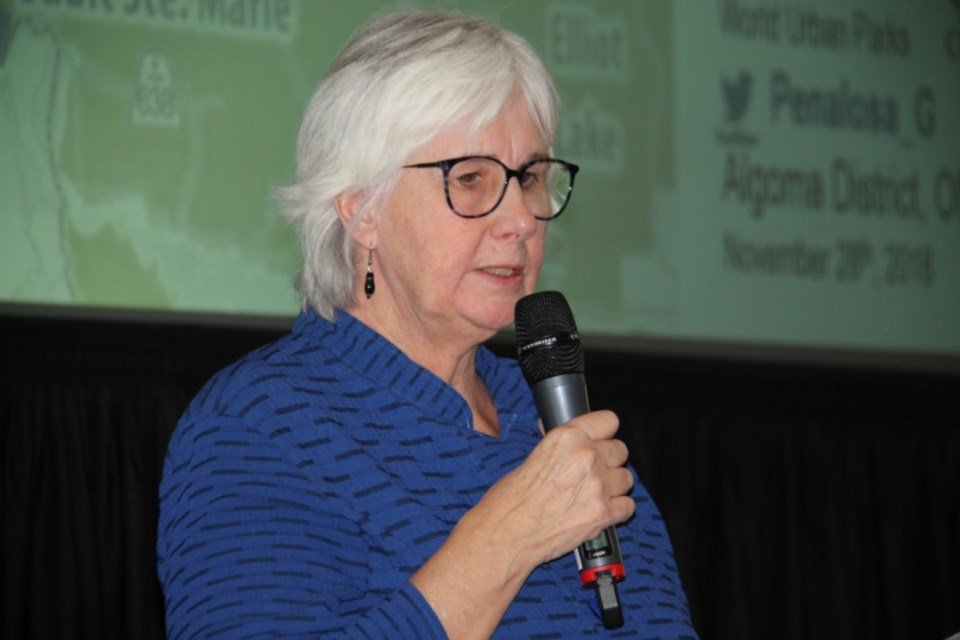Though best practices to use in order to avoid contracting COVID-19 have been well publicized across the city, province and country, Dr. Marlene Spruyt, Algoma Public Health (APH) medical officer of health and CEO, says she is concerned some returning to the Sault and Algoma district after travelling outside Canada are simply not adhering to calls to self isolate for 14 days.
“Our board members tell us they notice not everybody is following our advice,” Spruyt said, speaking to SooToday after Wednesday’s APH monthly board meeting.
“If you’ve travelled and you’ve recently returned home, stay home until your 14 days are up. If people didn’t travel but they get sick, go home and stay there until you’re better. If you are worried you may have COVID, call through one of the avenues we speak about.”
“Your personal behaviour today will have an impact on what kind of illnesses we see two weeks from now that will be overloading the emergency room,” Spruyt said.
As of March 25, 195 people in the APH region had been tested for COVID-19.
An Algoma resident, a female in her 50s, developed symptoms of COVID-19 after landing on a flight at Chippewa International Airport March 15, becoming the Sault and Algoma region’s first confirmed case of COVID-19.
84 people have tested negative, with another 110 presumptive cases of COVID-19, or ‘pending’ as APH describes it.
Presumptive or pending cases involve people who have been tested because they have travelled and returned to the Sault and Algoma district, or show one (but not all) of the COVID-19 symptoms, or displaying, as Spruyt described, “just something really odd in their clinical presentation that the physician who assessed them was worried about COVID, so a test was sent.”
“They come back negative and there’s a bunch of ‘pendings’ that we don’t know what the result is, hoping that a large number of them are going to be negative, but they’re still potentially positive.”
To anyone who suspects they have COVID-19, Spruyt said “don’t go anywhere.”
“If you suspect you have symptoms of COVID you should immediately go home and self isolate. From your safe space at home, where you’re not risking infecting anyone else, you then make the phone call to the COVID-19 Assessment Centre (705-759-3434 ext. 7152), Algoma Public Health (705-759-5404 or 1-866-892-0172 ext. 5404), Telehealth Ontario (1-866-797-0000) or even your own primary care provider.”
“For some people with complex medical histories it might be better to call your family doctor because they know more about you,” Spruyt said.
There is also a recently established Ontario government online self assessment tool (applicable to the entire province, not only the Sault and Algoma) available for those with COVID-19 concerns.
In Sault Ste. Marie, those referred for a COVID-19 test will be sent to the assessment centre (located in the former Kal Tire location at 165 Drive In Rd., within close proximity of Sault Area Hospital).
As far as the outlying Algoma district is concerned, in communities such as Elliot Lake, family health teams may go out and swab people in their homes, while family doctor offices will be used as emergency rooms in other, smaller communities, Spruyt said.
“For the last two weeks, there’ve been about 200 calls (to APH) a day. We hit a peak yesterday at 255.”
APH staff answering those calls, Spruyt said, have been directing people where to go if they suspect they have COVID-19, as well as clearing up any confusion callers may have over federal and provincial government messages to the public in a rapidly evolving situation.
Efforts have been made, Spruyt said, by APH officials to meet in person to advise isolated Mennonite communities (without radio, TV, online or social media connections) of the COVID-19 situation.
“With impoverished and homeless people we've done a lot of work with Social Services who’ve been working at setting up additional shelter space to get people off the streets, and also to set up shelter space where homeless people could go if they’re sick, or waiting for test results.”
To help those with mental health and addictions issues during this time, Spruyt said “all the providers of mental health services have gotten together to figure out how they can minimize person to person contact and dealing with a lot of issues by telephone...and trying to arrange more delivery of things if needed.”
In addition, Spruyt said APH is ensuring, with Social Services, unused frozen food donated by local restaurants gets to those in need during the COVID-19 crisis.
APH has over 200 employees.
Spruyt said essential APH employees are at the health unit’s Willow Avenue office, while others are working from home, the health unit having purchased additional laptops, cell phones and other technology to support APH work from home efforts.



